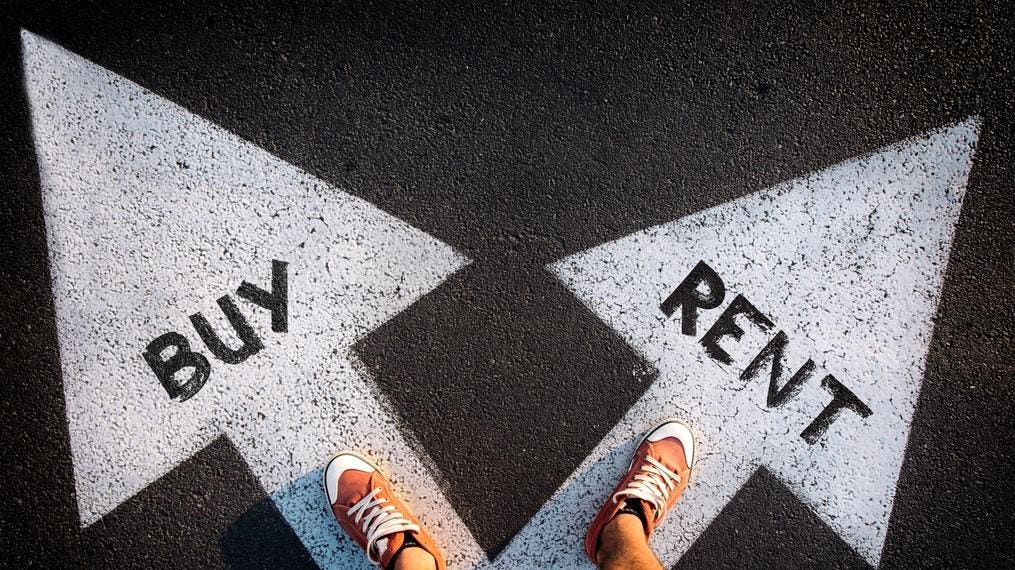The nation’s homeownership rate of 63.1% is at its lowest level in five decades in 2020, according to Census Bureau data. If you’ve been debating whether or not buying a home is a good financial decision, consider these qualitative reasons why renting might be better for you.
You Enjoy Hobbies More Than Household Chores
Pride is often cited as one of the main advantages of homeownership, where you have the freedom to express yourself in your house more than in a rental. Bankrate’s recent Financial Security survey reported 74% of Americans consider homeownership to be of higher value than any other economic stability measure, including a comfortable retirement, a successful career, having children and holding a college degree.
However, a recent survey by Hippo home insurance found 77% of homeowners dealt with an unexpected repair issue within the first year and 53% said the repair costs ranged from $1,000 to $5,000.
As a millennial interested in early retirement, not owning a home has freed up time and diverted financial resources away from household chores. I am learning to express my identity in hobbies and new interests instead of the home I live in.
In the past six months, I performed my first stand-up comedy set, signed up to dance in a hip hop show, and joined a weekly volleyball league with the money and time I previously spent on roof repairs, lawncare, and paint supplies.
My husband and I now have the energy for fun activities with more time on nights and weekends than we had before.
You Prefer City Culture Over Suburban Life
According to an analysis by Realtor.com, in 45 of the 50 largest U.S. cities, costs less than buying a starter home. The top five cities where it was cheaper to rent versus buy in 2023 were Austin, Texas; San Francisco; Seattle; Boston; and Portland, Oregon.
I live in Charlotte, North Carolina, and I sold my last home because location and convenience mattered to me more. I could buy another home on a 30-year mortgage for cheaper than what I rent right now.
But it would require me to move farther from the best restaurants, entertainment, and shopping in my city, many of which are currently within walking distance. My previous neighborhood was also much less diverse than where I live now.
I have met many of my neighbors through events organized by my apartment building, or hanging out in our communal areas, whereas I rarely spent time with the people in the neighboring houses before.
You Want To Invest In Multiple Income Streams
I still love real estate as a way to build wealth, and I’m not completely ruling out owning a home in the future. But since I’ve sold my homes, I’ve also freed up more mental space and money to learn and practice other ways of investing into early retirement.
Thanks to the money I received from my home sales, I’ve diverted my funds into other investments I was intimidated to try including:
- Treasury bills;
- Dividend exchange-traded funds;
- Real estate investment trusts; and
- Systems and experts to streamline my business.
The times I obsessed on improving my home and silently competed with my neighbors, I now spend growing my passive income and confidence as an investor with money that was tied up in my home equity.
You Value Traveling Instead Of Staying At Home
The amount of time you should stay in the home to recuperate the cost of purchasing it depends on your unique circumstances. But the general rule of thumb that you should stay in your home for at least five years is a good guideline to follow. The five-year rule also takes capital gains rules into consideration, where you might be subject to additional taxes if you sell your home less than two years after you bought it.
Closing costs and taxes aside, as a financial coach, whenever I’ve asked new students what their number one goal is in retirement, it’s travel. However, I most commonly hear they can’t travel because they can’t afford it with their current budgets, which are stretched thin (even though many of them are homeowners).
According to a new study by Chamber of Commerce, a real estate research and reviews company, more than one quarter of homeowners in the United States are “house poor,” spending more than 30% of their income on housing costs. Between housing and other rising costs like student loans and credit card debt, travel becomes very low on the priority list.
Currently many homeowners who want to sell their homes don’t feel the flexibility to move as they want. Due to higher interest rates, 82% of those looking to sell a home feel “locked in” by their low interest rate they got before the increase in housing prices and mortgage rates, according to a survey by Realtor.com.
By downsizing from a 4-bedroom house to a 2-bedroom apartment, I also canceled all but one of my streaming services, and got rid of my big screen TV. This encouraged me to spend less time at home, and look forward to more trips around the country and abroad.
I started traveling extensively in the last two years. Those experiences were made possible by not having my net worth tied up in the value of my home, to spend more money traveling instead.
I’m not saying that if you are a homeowner or want to buy a home, you’re making a bad decision. But as someone who felt the societal pressure to own a home and appear successful, I’m offering an alternative perspective that you can still live a fulfilling and rich life, even if you choose not to buy one.
Read the full article here




